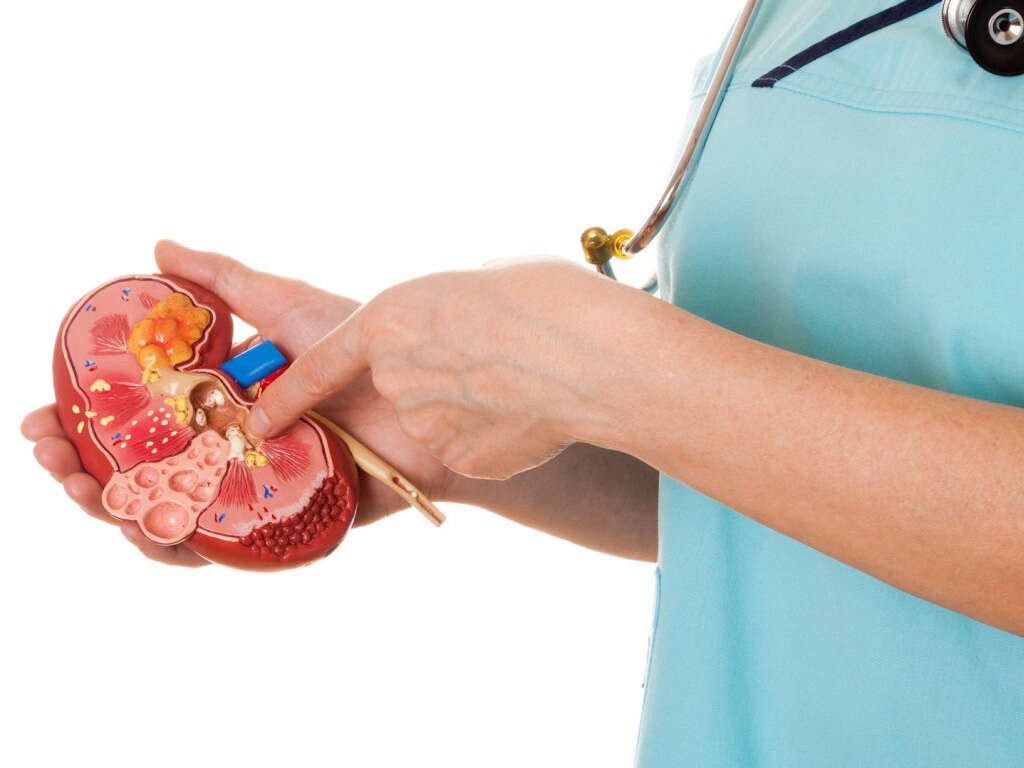
Kidney stones are a common urological condition that affects millions of people worldwide. These hard deposits of minerals and salts can form in the kidneys and cause severe pain and discomfort. Recognizing the symptoms of kidney stones is crucial for early detection and timely medical intervention. In this blog post, we will discuss the various symptoms of kidney stones, when to seek medical help and the importance of consulting an experienced urologist. We will also highlight Dr. Rajesh Dhake and his clinic, a renowned urologist specializing in kidney stone treatment, located in Pune.
Symptoms of Kidney Stones:
- Intense Abdominal or Back Pain: One of the most common symptoms of kidney stones is excruciating pain in the abdomen or back. The pain can be sharp and sudden, often radiating to the groin area.
- Hematuria: Blood in the urine, known as hematuria, is another telltale sign of kidney stones. The urine may appear pink, red, or brownish in color.
- Frequent Urination: Kidney stones can irritate the bladder, leading to increased frequency of urination. Patients may experience an urgent need to urinate more frequently than usual.
- Painful Urination: Some individuals with kidney stones may experience pain or a burning sensation during urination.
- Cloudy or Foul-Smelling Urine: In certain cases, kidney stones can cause changes in urine appearance and odor. Cloudy or foul-smelling urine may indicate the presence of stones.
- Nausea and Vomiting: Kidney stone-related pain can be intense enough to trigger feelings of nausea and vomiting.
- Urinary Tract Infections (UTIs): The presence of kidney stones can increase the risk of developing UTIs. Symptoms may include fever, chills, and discomfort during urination.
- When to Seek Medical Help: While some small kidney stones may pass on their own, larger stones or those causing severe symptoms require medical attention. It is essential to seek medical help in the following situations:
- Severe Pain: If you experience severe or worsening pain that affects your daily activities or is accompanied by other concerning symptoms, it is crucial to consult a healthcare professional.
- Persistent Symptoms: If you notice persistent symptoms such as blood in urine, frequent urination, or pain lasting for more than 48 hours, a medical evaluation is necessary.
- Fever and Chills: The presence of fever and chills along with kidney stone symptoms may indicate an infection, requiring immediate medical attention.
- Inability to Pass Urine: If you are unable to urinate despite having a strong urge, it may be a sign of an obstructive kidney stone, and immediate medical intervention is necessary.
- History of Kidney Stones: Individuals with a history of kidney stones are more prone to recurrence. Regular check-ups and consultations with a urologist are recommended to monitor and manage the condition effectively.
- The Importance of Consulting an Experienced Urologist: When it comes to kidney stone treatment, consulting an experienced urologist is crucial for accurate diagnosis, personalized treatment plans, and optimal outcomes. A urologist specializes in conditions affecting the urinary system, including kidney stones, and possesses the expertise to provide comprehensive care.
Dr. Rajesh Dhake, a renowned urologist based in Pune, is a trusted name in the field of kidney stone treatment. With years of experience and a dedication to patient care, Dr. Dhake has earned a reputation for his expertise and compassionate approach. His clinic in Pune offers state-of-the-art facilities and a multidisciplinary team of healthcare professionals to ensure the highest quality of care for patients.
Dr. Dhake understands the impact kidney stones can have on a person’s quality of life and aims to provide personalized treatment plans tailored to each patient’s needs. He employs advanced diagnostic techniques, such as imaging studies and laboratory tests, to accurately identify the size, location, and composition of kidney stones. This information is crucial in determining the most appropriate treatment approach.
Depending on the characteristics of the kidney stones and the individual’s overall health, Dr. Dhake may recommend various treatment options. These may include:
- Extracorporeal Shock Wave Lithotripsy (ESWL): This non-invasive procedure uses shock waves to break up kidney stones into smaller fragments, allowing them to pass more easily.
- Ureteroscopy: In this minimally invasive procedure, a thin tube with a camera is inserted into the urinary tract to locate and remove or break up kidney stones.
- Percutaneous Nephrolithotomy (PCNL): A surgical procedure where a small incision is made in the back to remove larger kidney stones.
- Medications and Lifestyle Modifications: Depending on the composition and underlying causes of kidney stones, Dr. Dhake may prescribe medications to help prevent stone formation. Additionally, he may provide guidance on dietary and lifestyle changes to reduce the risk of recurrence.
Summary:
Recognizing the symptoms of kidney stones is crucial for early detection and timely treatment. Severe pain, hematuria, frequent urination and other associated symptoms should prompt immediate medical attention. Consulting an experienced urologist like Dr. Rajesh Dhake in Pune ensures accurate diagnosis, personalized treatment plans and comprehensive care. Dr. Dhake’s expertise and dedication to patient
well-being make his clinic an excellent choice for individuals seeking effective kidney stone treatment. If you or a loved one experience symptoms of kidney stones, do not hesitate to reach out to Dr. Rajesh Dhake and his clinic in Pune for expert guidance and care.




